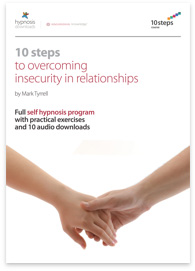Stop Arguing Your Relationships to Death
7 ways to stop arguing and get along better with people
 "Stop Arguing Your Relationships to Death" courtesy of Ed Yourdon
"Stop Arguing Your Relationships to Death" courtesy of Ed YourdonI buried my face in the pillow, stuffed cotton wool into my ears, even tried whistling Beethoven's 5th, but it was no use; I could still hear it. The infernal arguing from the hotel bedroom next door contaminated my ears like relationship toxic waste. I couldn't take anymore; I needed sleep. I had to do something.
Choosing the first sensible option I could think of, I focused my mind in an attempt to influence them telepathically. It's amazing how desperation stimulates belief in the supernatural. Surprisingly though, this had little effect; so I decided at 1 am to fling my Britishness aside and knock on their door.
Why do we argue and what the blazes is wrong with it anyway?
How arguing ruins relationships
If you were raised in an argumentative household, it may feel natural to argue a lot. Maybe you get a buzz from the excitement that arguing brings. But whatever the cause, chronic arguing brings problems - and not just for the neighbours.
Sure, most of us argue sometimes and it would be a boring world if we all saw things in exactly the same way. But destructive arguing can destroy valuable relationships. The opposite of arguing isn't agreement in all things, it's knowing how to disagree and still maintain mutual respect and liking.
Here are seven tips to help you stop arguing.
1) You stop arguing!
Take responsibility. It takes two to argue. Instead of thinking: "Well, they started it!", look to yourself: "Okay, they are trying to argue but I am not going to." If you deny fire oxygen, it won't burn.
Instead, recognize areas where you can agree and focus on those.
People will feel more connected to you and willing to cooperate when you can make at least some 'agreement statements' such as:
- "I can see why you would think that..." or:
- "I realize what you are saying..."
Ask questions and listen to the answers.
2) Stop arguing by binning the insults
The famous psychologist John Gottman (1) discovered that the way a couple argue is a big predictor of whether they'll break up. If their tiffs contain criticism (rather than complaint) then the relationship is headed toward meltdown. Character assassination is a huge no-no when it comes to keeping friends and lovers.
When you criticize, you over-generalize negatively about their whole identity. So if someone forgets to pick up some milk, "You are such a lazy slob!" would be a criticism because it attacks their whole character. "I'm upset you forget the milk!" is a reasonable complaint because it's specific. Avoid criticizing rather than complaining and remember to let people know when they make you happy, too. : )
3) Stop trying to convince people by arguing
You might be right, but arguing isn't a great way to convince people. Why? Because if they're defensive and angry, they'll be unable to hear you. People are like radio transmitters when it comes to communication. They are either set to 'receive' or 'transmit'. Arguing is akin to all participants being stuck on 'transmit'.
This is known technically as 'a waste of time'.
Logic only penetrates when someone is calm enough to let it. Plus, people often care more about being seen to be right when they argue rather than actually being right.
So just state your case once and forget it. Strong emotion swamps the thinking part of the brain (2); trying to convince someone whilst you or they are angry or feeling insulted won't work.
4) Stop arguing about the past
When couple counselling, one of the tasks I sometimes set a couple is to continue arguing (this is usually pretty easy) but only argue about issues relating to the past seven days. This stops it spiralling out of control.
If a woman and man are arguing about the fact she feels he ignored her at last night's party, then suddenly she brings up the time in 1984 when he was late to her friend's wedding, then he reminds her of the way she insulted him in front of colleagues back in 1990, and so on, we have the equivalent of a minor border skirmish turning into an all-out nuclear war. Ouch!
Constantly going back to stuff someone 'did wrong' weeks, months, or years before is toxic. What's done is done. My couples found arguments grew shorter because they had less ammunition to fire at one another when they stopped time travelling. So agree to argue only about stuff that happened within the previous week - period.
5) Give yourself 30 minutes to calm down
Here's what happens: Two people are having a heated argument. One person goes into another room to 'cool off'. After ten minutes, they feel calmer. So they go back into the same space as the person they'd been arguing with - but what happens? Even though both parties felt calmer, suddenly they are back fighting again.
Feeling calmer and being calmer can be two different things. It takes 30 minutes or so to calm down physiologically after a row - so give it more time. And during the cool-off time, refrain from rehearsing in your head all the things you want to say to 'set them straight'. Instead, think cooling thoughts and remember times when you were getting along better with this person.
6) Stop taking it to heart
Argumentative people tend to take things personally, even when they certainly weren't intended that way. This leads to a breakdown in communication. If someone is very critical then either they have never learned a better way of communicating or they are so angry that they are over-generalizing out of control. Either way, it's their problem.
Practice taking time in your mind before you respond to people. Count to 10 and ask yourself, "How can I respond to this calmly, rising above it?" If you are too defensive, people eventually stop trying to communicate with you at all, because of the hassle.
The next tip surprises many people.
7) Keep a lid on it
Know when to button it, too. Contrary to popular thinking, being totally 'honest' by voicing every thought, always 'having everything out in the open', can be disastrous. Couples who have happily been together for decades have learned what not to talk about (3).
Learn to keep quiet about such things if you know someone gets upset when you criticize their mother or talk about how you passed your driving test at the first attempt and they didn't. If you know where the minefield is, steer clear.
Here's something else to keep in mind: Research has shown that people who are able to apologize are more likely to be married and stay married than those who can never say, "Sorry."
And...keep your sense of humour. Knowing how to defuse arguments through humour is a great skill. If you can apologize and be humorously self-deprecating ("I'm sorry," I shouted, "this heat seems to turn me into Jack Nicholson from The Shining!"), so much the better.
So with all this in mind I crept, like some therapeutic ninja, out into the corridor and, mustering as much dignity as the hotel-issue dressing gown allowed, I hesitantly knocked on the rowing couple's door. After muffled mumbling, a large man, naked above the waist (it could have been worse), timidly opened said door.
"Hi," he said. "I'm so sorry, have we been keeping you awake?"
"Well, as a matter of fact, you have!"
"I promise we will stop arguing now," he assured me. "And all I can do is apologize on behalf of my wife. I really don't know what's got into her tonight!"
"So much for Tip #1!" I thought as I stumbled back to my room.
10 Steps to Overcome Insecurity in Relationships course
Despite how much you love your partner, are you worried you're driving them away?...
References
- John Gottman, PhD, is famous for his pioneering work on human relationships and communication style. He has spent decades studying real couples and has highlighted behaviours shown to deteriorate human relationships. Dr Gottman found his methodology predicts with 90% accuracy which newlywed couples will remain married and which will divorce four to six years later. It is also 81% accurate in predicting which marriages will survive after seven to nine years.
- See Daniel Goleman's book Emotional Intelligence: Why it can matter more than IQ (1996) for an excellent discussion on how emotionality swamps intelligence.
- According to John Gottman, PhD: "Couples who avoid saying every critical thought when discussing touchy topics are consistently the happiest."







